-
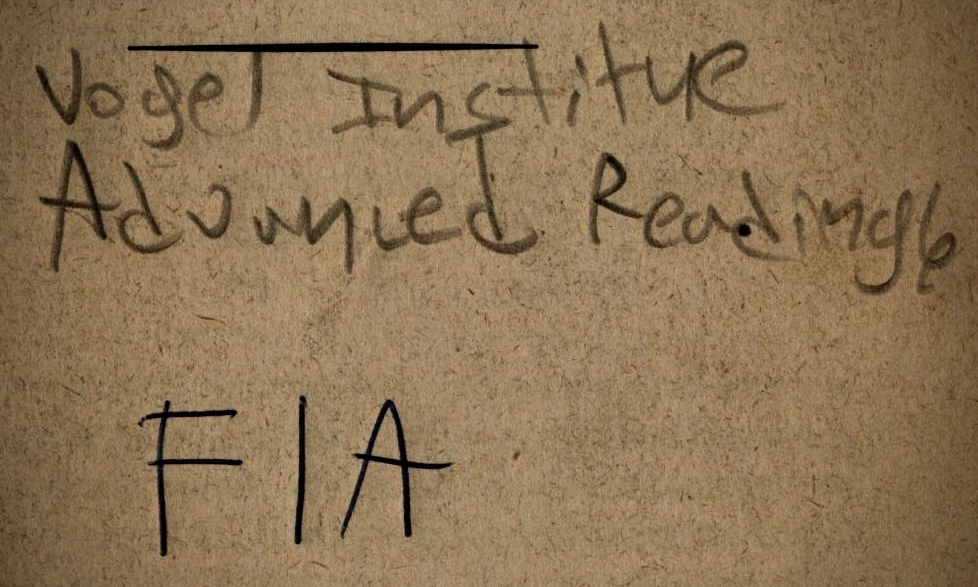
Vogel Institute
Amos Vogel war Zeit seines Lebens ein leidenschaftlicher Leser, der sich durchs Lesen die Welt erschloss. Er sagte von sich selbst: „Mein Interesse an der Welt ist unaufhörlich. Ich habe ein äußerst aktives Interesse daran, wie die Welt ist, wie sie sein könnte oder sollte. Ich beschäftige mich sehr intensiv… […]
-
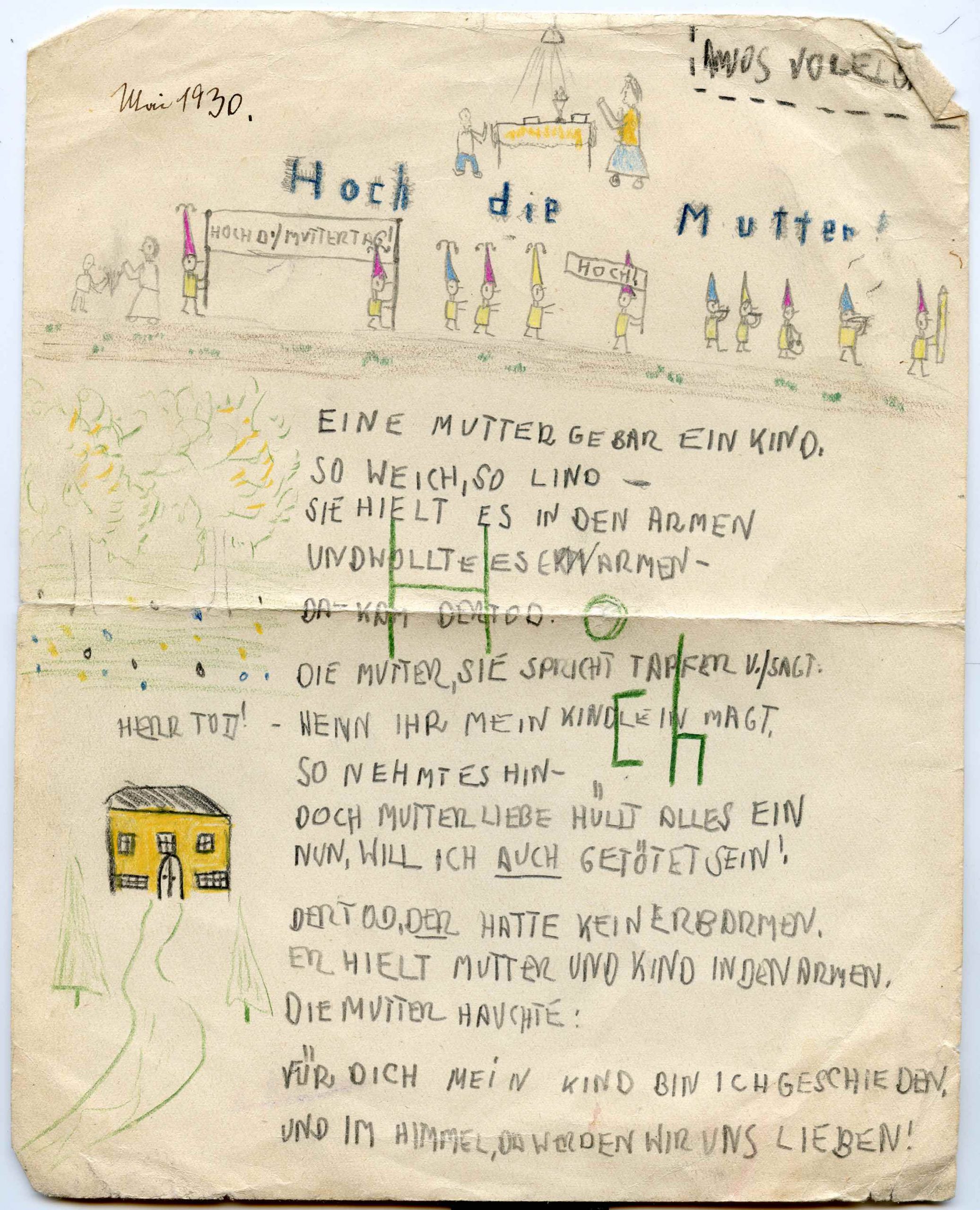
Muttertag 1930 / Mother’s Day 1930
Im Alter von neun Jahren verfasste Amos Vogelbaum zum Muttertag dieses existentialistisch anmutende Gedicht für seine Mutter Mathilde zu ihrem Ehrentag. Die Szenerie mutet trist und unheimlich an und erinnert in frappierender Weise an Fritz Langs Stummfilm “Der müde Tod”. […]
-

Brit-Milah / Covenant of Circumcision
Amos Vogelbaum wurde am 18. April 1921 in Wien geboren. Unter seinen persönlichen Unterlagen findet sich auch die Ankündigung der acht Tage danach erfolgenden Aufnahme in die jüdische Gemeinschaft. […]
-
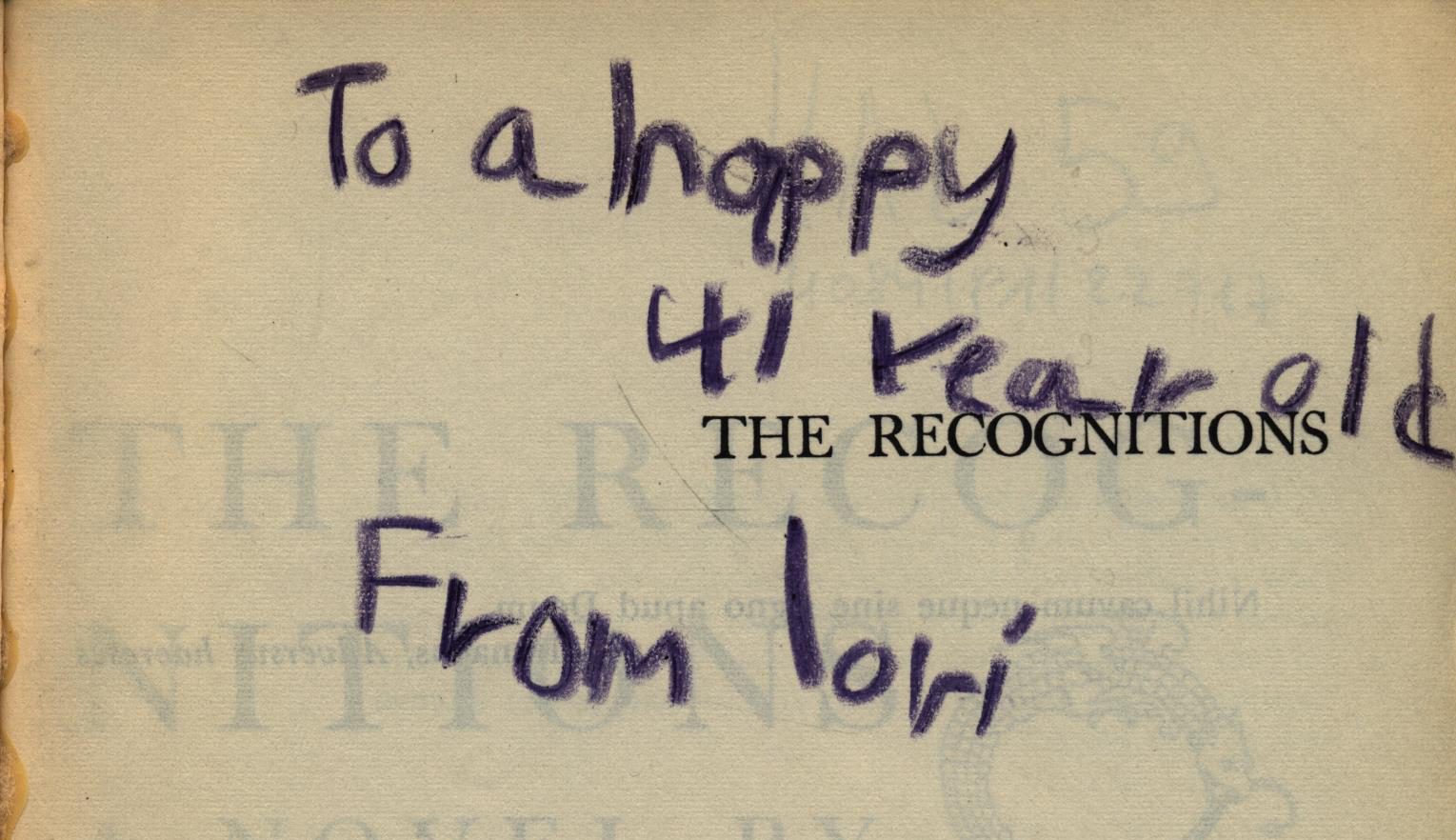
Amos Vogel Eulogy
By Loring Vogel: Mein Poppa / Make / These words, thoughts / This naming and knowing / This organization / Your light, alive in me. […]
-

12 Bücher / 12 Books
12 Bücher durfte Amos Vogel(baum) sich zu seinem Geburtstag selbst aussuchen. Jetzt, im Jahr 2021, möchten wir ihm 12 Neuerscheinungen aus unserer Bibliothek zum Geburtstag widmen und laden Sie ein, ihrer Neugier und Leselust genauso zu frönen wie das Geburtstagskind selbst. […]
-

Verbotene Bücher / Forbidden books
Es gibt eine Erzählung aus der Zeit um Amos Vogels Bar Mizwa im Jahr 1934: Sein Vater hatte ihm einen Freibrief gegeben, mit ihm in eine Buchhandlung zu gehen, um sich verbotene Bücher auszusuchen. Vogel erzählt später, dass er in einem öffentlich nicht zugänglichen Raum hinter einem Vorhang ohne Einschränkung… […]
-
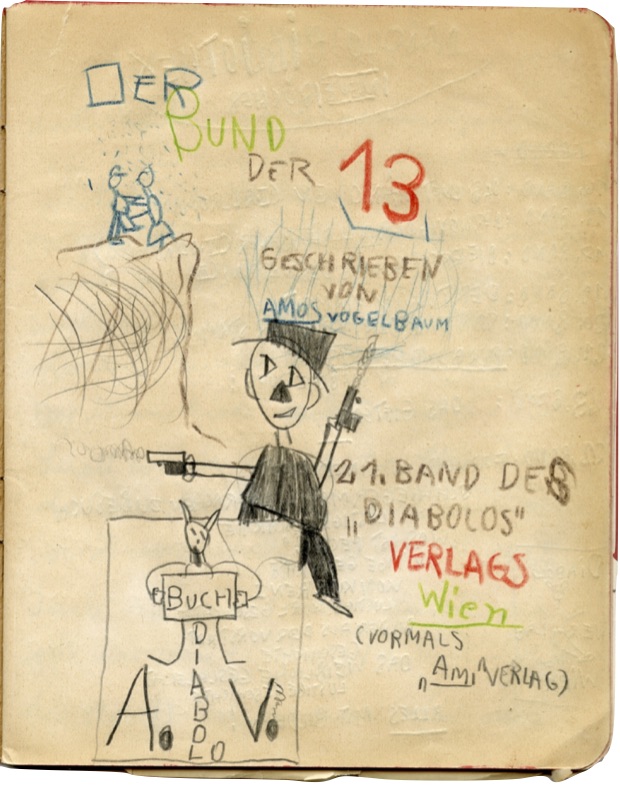
Der Bund der 13 / The League of 13
Amos Vogel hieß vor seiner Emigration aus Wien 1938 Amos Vogelbaum: Unter diesem Namen schrieb er Kurzgeschichten, bebilderte sie und „veröffentlichte“ sie in selbst erfundenen Verlagen. “Der Bund der 13” wurde vermutlich 1933 geschrieben und war bereits der 21. Band des “Diabolos Verlags” Wien (vormals “Ami Verlag”). […]
-

Digital Pandemics or: On Preserving the Audience and the Will to Will
Jurij Meden (Head of Film Programming at the Austrian Film Museum) on the current crisis […]
-

Playing with the Fantastic: Iris Elezi talks about Xhenfise Keko
Andrey Arnold talks to Iris Elezi about Xhenfise Keko […]
-
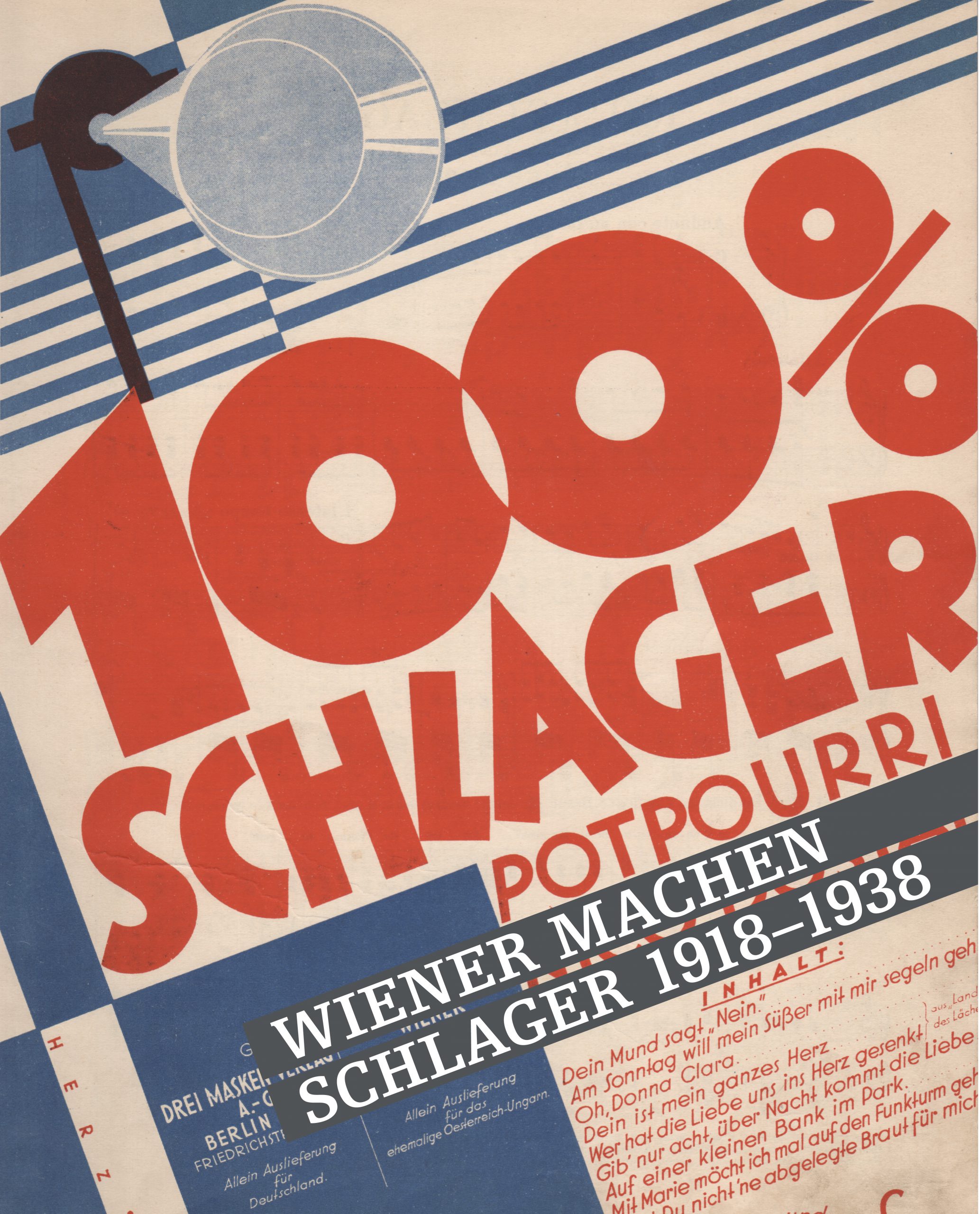
“Muss in jedem Film gesungen werden?”
In dem Vortrag „Muss in jedem Film gesungen werden?“ wird eine Zeitreise unternommen, in der das Publikum aus einer Zeit der tonalen Reizüberflutung in eine Epoche zurückgeführt wird, in der die Entwicklung von Stumm- zum Tonfilm unsere Hörgewohnheiten für immer veränderte. Einführende Gedanken von Günter Krenn. […]
-
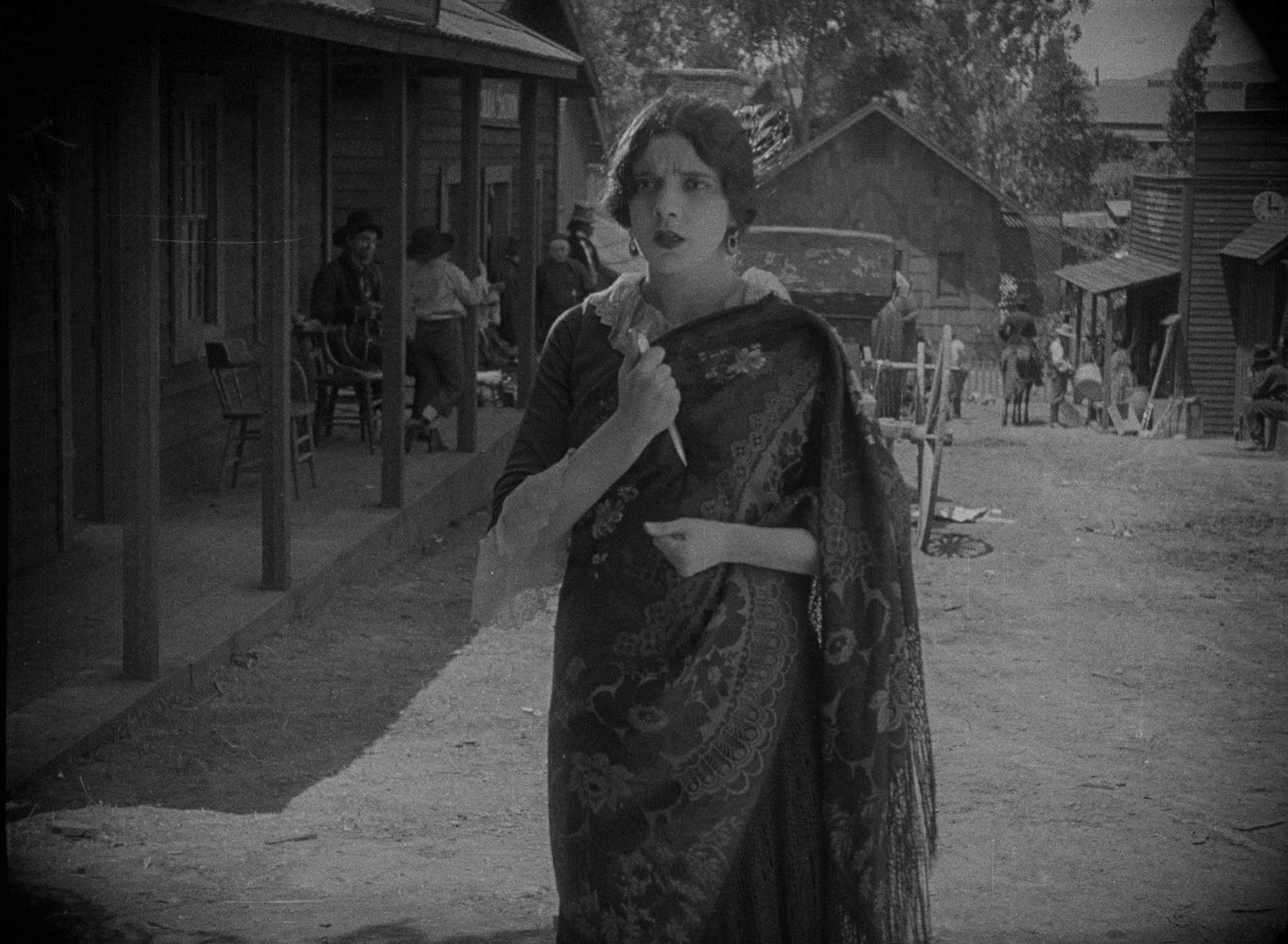
Notes from Forever Film: “The Half-Breed”
The weight of knives and more saved ladies in Allan Dwan’s “The Half-Breed” presented by the Cinémathèque française. […]
-

Notes from Forever Fim: “Expedicion Giró”
Parachuting dogs and doubts about the versatility of the program. […]